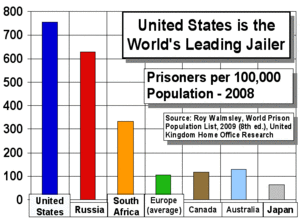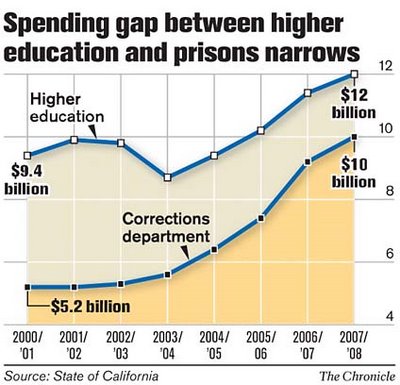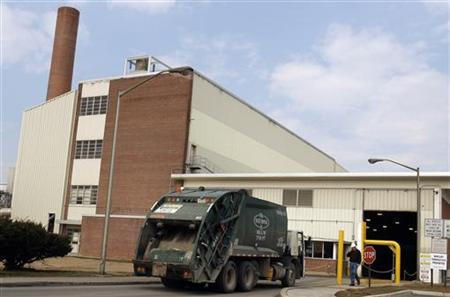There are historical reasons for why we lock up so many people,
some going back a century or more, and some starting in 1980 and 2001.
Knowing what they are (and what they are not)
lets us see what we can do to end the epidemic of
incarceration that is damaging education and agriculture in Georgia.
Adam Gopnik wrote for the New Yorker dated 30 January 2012,
The Caging of America:
Why do we lock up so many people?
More than half of all black men without a high-school diploma go
 to prison at some time in their lives. Mass incarceration on a scale
almost unexampled in human history is a fundamental fact of our country
today—perhaps the fundamental fact, as slavery was the
fundamental
fact of 1850. In truth, there are
more black men in the grip of the
criminal-justice system—in prison, on probation, or on
parole—than were in slavery then.
to prison at some time in their lives. Mass incarceration on a scale
almost unexampled in human history is a fundamental fact of our country
today—perhaps the fundamental fact, as slavery was the
fundamental
fact of 1850. In truth, there are
more black men in the grip of the
criminal-justice system—in prison, on probation, or on
parole—than were in slavery then.

In Georgia,
1 in 13 of all adults is in jail, prison, probation,
or parole: highest in the country (1 in 31 nationwide).
Georgia is only number 4 in adults in prison, but we’re continuing
to lock more people up, so we may get to number 1 on that, too.
 Over all, there are now more people under
“correctional supervision” in America—more than
six million—than
were in the Gulag Archipelago under Stalin at its height. That city of
the confined and the controlled, Lockuptown, is now the second largest
in the United States.
Over all, there are now more people under
“correctional supervision” in America—more than
six million—than
were in the Gulag Archipelago under Stalin at its height. That city of
the confined and the controlled, Lockuptown, is now the second largest
in the United States.
The accelerating rate of incarceration over the past few decades is just
as startling as the number of people jailed: in 1980, there were about
 two hundred and twenty people incarcerated for every hundred thousand
Americans; by 2010, the number had more than tripled, to seven hundred
and thirty-one. No other country even approaches that. In the past two
decades, the money that states spend on prisons has risen at six times
the rate of spending on higher education.
two hundred and twenty people incarcerated for every hundred thousand
Americans; by 2010, the number had more than tripled, to seven hundred
and thirty-one. No other country even approaches that. In the past two
decades, the money that states spend on prisons has risen at six times
the rate of spending on higher education.
And we can’t afford that, especially not when we’re cutting school budgets.
That graph of education vs. incarceration spending is for California.
Somebody should do a similar graph for Georgia.
The article does get into why we lock up so many people:
Continue reading →
 James O’Toole wrote for CNN Money 6 May 2013,
SEC sues financially troubled Harrisburg,
James O’Toole wrote for CNN Money 6 May 2013,
SEC sues financially troubled Harrisburg,







